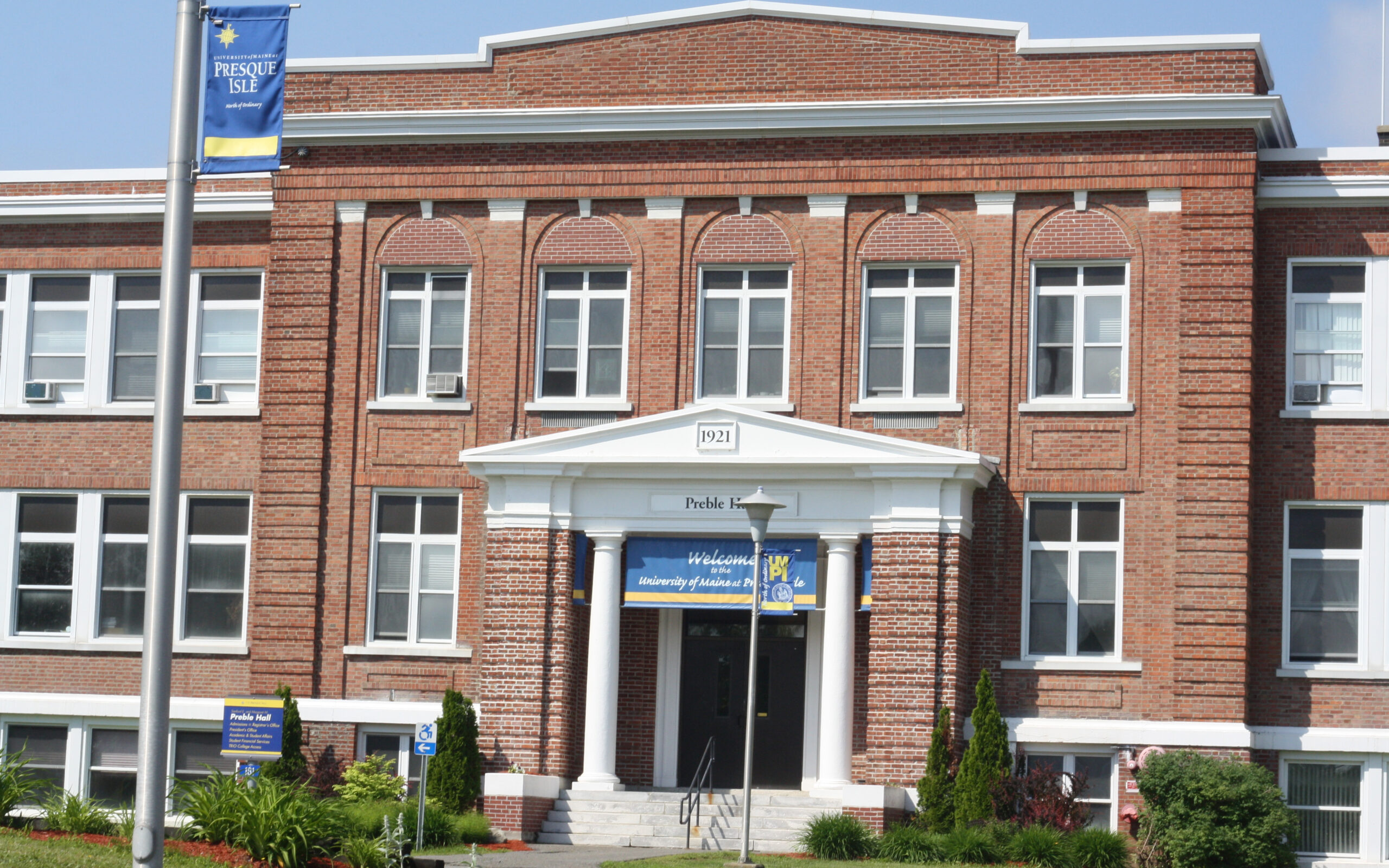PRESQUE ISLE, Maine — The University of Maine at Presque Isle has received a major grant from the U.S. Department of Education that will allow officials to develop academic programs in computer science and health administration and expand opportunities for career readiness and experiential learning for students.
The funding is the largest single grant that UMPI has received at any time throughout the campus’ history.
UMPI was notified at the end of September that it would receive a total of $2.2 million of funding over the next five years through the DOE’s Title III Strengthening Institutions Program. The funding is offered every two years to higher education institutions who identify programs to fulfill workforce needs and primarily serve low-income students.
The federal funds became available on Oct. 1 and will give the campus approximately $449,962 each year to develop sustainable programs in computer science and health administration and hire a coordinator for university experience/experiential learning.
Since receiving access to the funds, UMPI has begun crafting job descriptions for two tenure-track professors, one for computer science and another for healthcare administration.
Officials hope to hire both faculty members in January 2020 so that they can develop course curriculum throughout that spring. UMPI will work to recruit students during that time and plans to launch both programs in fall 2020.
In recent years UMPI’s admissions team has heard more students ask about computer science than any other program. They also identified health administration as one of the fastest growing career sectors in Maine. State data projects a 12 percent job growth while 65 percent of healthcare jobs will require a bachelor’s degree.
“We worked with our enrollment manager and admissions team to identify fields that will meet local, state and national needs for the workforce,” Rice said. “We knew that if we had the opportunity to add two new programs, these were the two we’d want to add.”
Both computer science and healthcare administration will contain two concentrations — software development and information and data management and community health and health informatics, respectively.
Grant funding will support five new faculty positions at UMPI — two for each of the new academic programs and one who will serve as the new university experience/experiential learning coordinator.
The college will also purchase new Smart Classroom technologies and workstations that are designed to support advanced computer software needed for both computer science and healthcare administration.
UMPI will hire the second faculty members for both computer science and healthcare administration during the third year of funding. The grant allows for UMPI to gradually build student enrollment in the two programs before becoming fiscally responsible for the faculty members’ salaries.
“A grant like this is especially important for institutions like UMPI that are looking to boost enrollment for high-need majors,” said Debbie Roark, UMPI executive director for university advancement and external affairs. “The funding itself supports salaries for faculty members who will develop the program, not student outreach. It is our own task to enroll students so that the programs essentially will sustain themselves after the five years.”
UMPI’s goal is to enroll at least 12 first-year students into both programs every year in order to build and sustain the programs after the grant funding is no longer available.
Rice confirmed that UMPI is in the process of hiring a current faculty member to serve as the university experience/experiential learning coordinator. The coordinator will develop courses that introduce students to topics such as career readiness and financial literacy and work with the career services office and faculty members to develop or expand internship and experiential learning opportunities for all programs.
The new academic programs will also benefit students from other majors. Within computer science, Rice noted, there is already interest in developing courses specifically for education majors.
By 2021 UMPI plans to incorporate computer science and healthcare administration into YourPace, an online program designed for adult learners who earn competencies in subject areas instead of taking traditional online courses. The program is aimed at adults who have some college credit but not a four-year degree.
“The type of pathway will work well for people already working in computer science or information technology who have associate degrees,” Rice said.
Without large funding support, Roark said, UMPI likely would have spent years developing the two new programs, either on their own or as academic minors within current majors, as was the case for the college’s agricultural science and agribusiness program. The DOE grant will allow UMPI to more quickly take advantage of career fields that many students have expressed interest in.
“All the systems that we’ll put in place as a result of the grant will make our students stronger and more ready for the workforce when they graduate,” Roark said. “This funding is going to be transformative for all students.”








